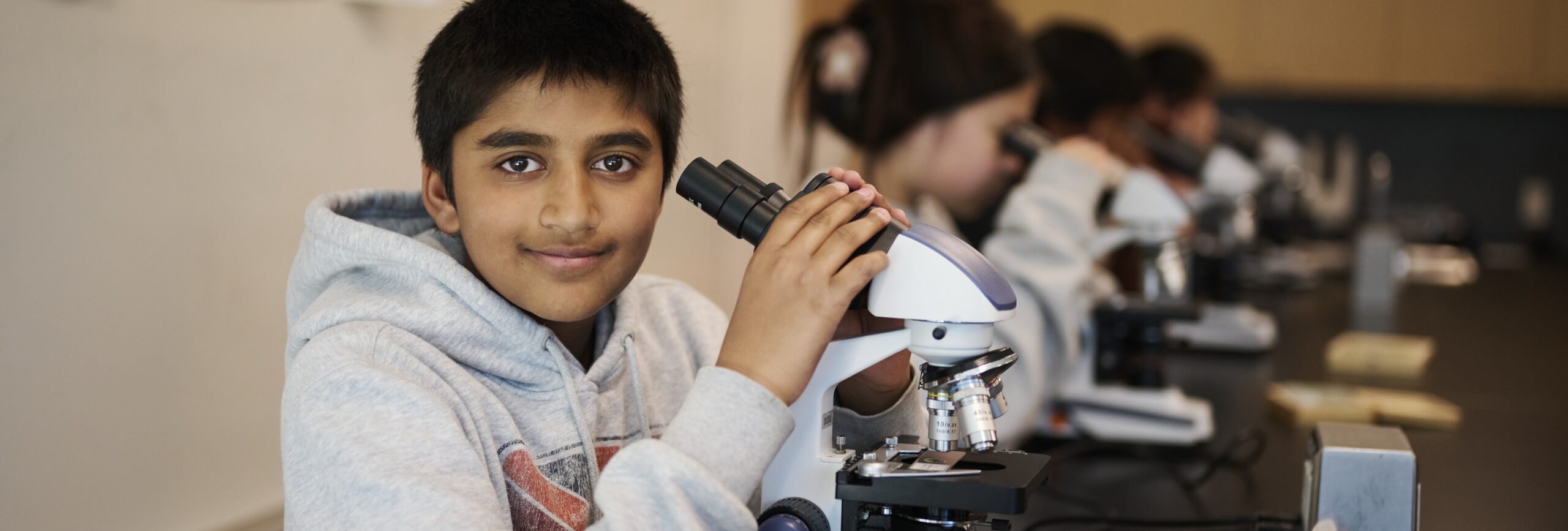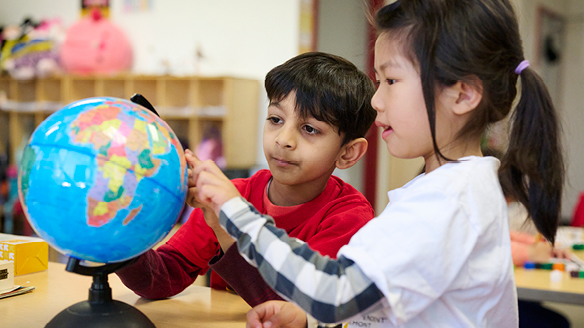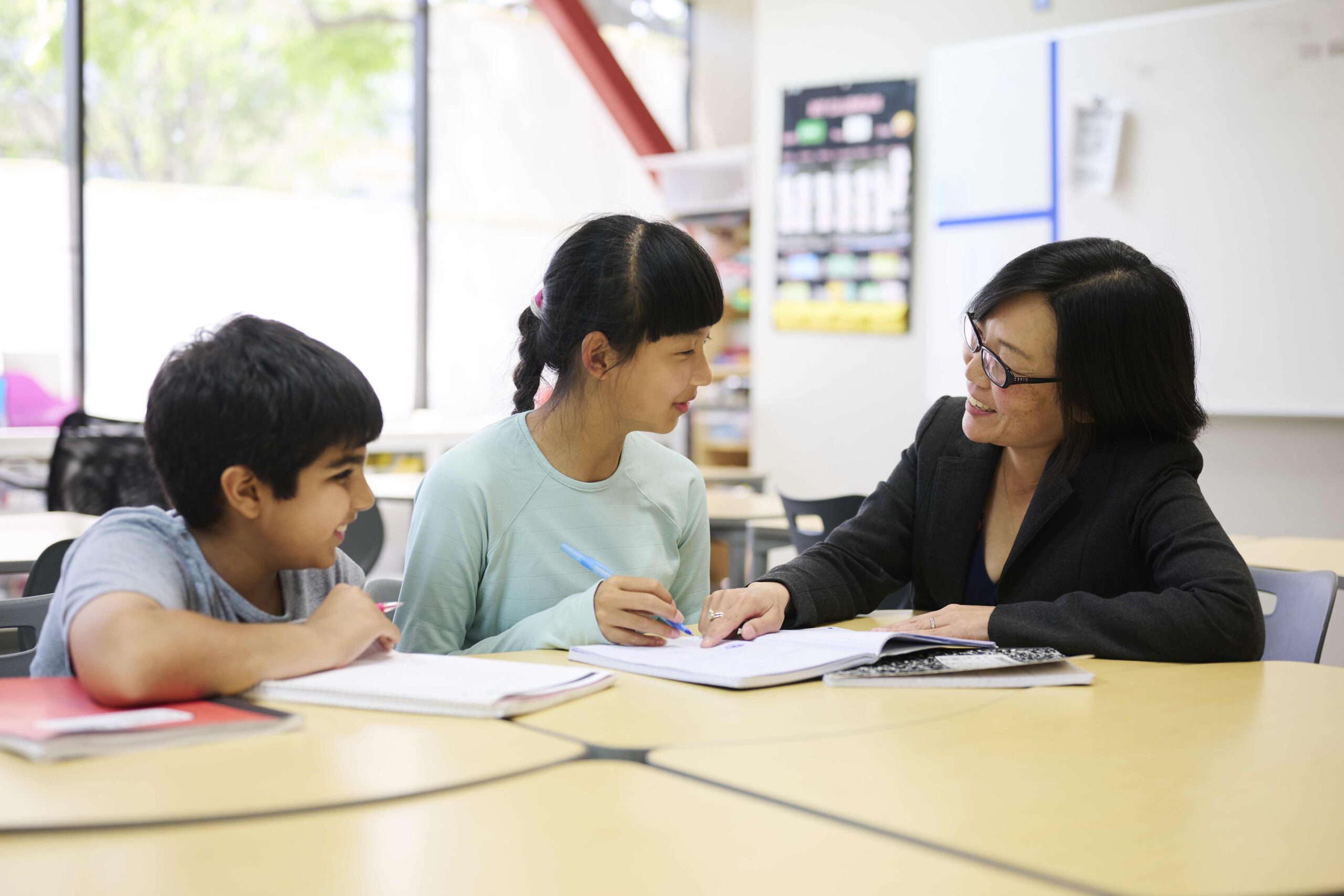September 25, 2023

Every admissions season we field hundreds of questions about the admissions process, our program, the transition, student life, electives, extracurriculars, and so much more!
While we are happy to speak to every one of our families, we notice the same questions being asked consistently.
Keep reading below to learn more about the top ten questions asked every admissions season.
#1 – How many students will be admitted in each grade?
Our most commonly asked question! Seat capacity changes from year to year depending on the reenrollment of our current families and our graduating class. As this is an ever-changing number, we aren’t able to determine seat capacity until around February, after the reenrollment deadline of our current families, which is why we make the majority of our admissions offers (Regular Admissions) in March. So, though we cannot provide you specifics of exactly how many seats are available “this year” and in “this grade”, we encourage you to apply as we will have available seats in all grades every year.
If you are interested in a BASIS Independent Fremont education, apply!
#2 – What is the difference between Early Admissions and Regular Admissions?
We offer two application cycles during our core season. Early Admissions is only available for TK. This will require families to complete their application earlier in order to have the opportunity to receive an admissions decision and accept their seat earlier. Regular Admissions will have all the same requirements but families receive an admissions decision and accept their seat at a later date. Regular Admissions is open to all applicants, TK-Grade 9.
#3 – How do you help students transition into the program?
We enroll new students every year. For students to achieve the results that they do in our program, they must have the necessary support along their academic journey, from both the school and at home. While we encourage families to join our program sooner rather than later, students consistently join in later grades and are incredibly successful.
One of the tools with which we support our students is through office hours. Teachers provide support through targeted interventions as well as office hours throughout the school week for both students and parents to talk through concerns or questions. In addition to this, both our lower and upper school campuses have student affairs’ departments consisting of deans and counselors. This department provides academic and social emotional tools, along with interventions for academic and behaviors support plans.
Depending on the grade we offer a student-led Peer Tutoring and mentoring program, which operates after school and is there to help expand their networks and become comfortable asking for help. We also offer Summer School along with JumpStart Packets before the start of the school year.
#4 – Can a student successfully transition from a public school to your program?
Every year, we have students join us from multiple public schools. Any motivated student can excel in our program. We have a strong support network to ensure a student has the toolkit to succeed. In the beginning, there is always some adjustment for students from both public and private schools. Workloads may be higher than average in the beginning as students adjust to the structure and practices of our day-to-day program and classroom experience. However, we see time and again, that students adjust and learn how to utilize their resources to thrive in their school life.
School administration, faculty, and staff are always present to participate in supporting and guiding students, as well as helping develop good work and study habits, along with time management skills.
#5 – How much homework should students expect in middle school and high school?
This depends on the student, their core classes, electives, after-school activities, and even what time of year it is, especially in high school. Grade 5 students will typically see 45 minutes to an hour of homework every night, but that depends on the day and the student. Grade 6 students will have one to one and a half hours of homework. Grade 7 and 8 students will have one and a half to two hours of homework, but that once again depends on the student and their schedule. Homework in high school largely depends on our student’s course selections but is usually around two hours or more. Our Student Affairs Team assists in monitoring homework but since each student, their work ethic, and their schedules can vary, it is hard to say an exact time for each grade.
#6 – With such high academics, do students even have time for clubs and sports?
Absolutely! Most of our student body participates in at least one extracurricular activity at our school every year. But our answer to this is, “it always depends on the student.” We have Upper School students taking two to three AP courses and they participate in one to two clubs or more, but we also have Lower School students that take their required coursework and only have time to participate in one club.
Students are given the tools to learn and practice organization, time management, and work and study habits. But no two students are alike. It is more important to us that our students learn to take on only what they can handle, challenge themselves when appropriate, and learn when and if they need to turn their focus elsewhere. Many students may play a sport or participate in a club on campus but also engage in an activity outside of school such as ballet or martial arts. Our students learn to manage their time while exploring and enjoying their extracurricular interests and passions.
#7 – What is your teacher hiring process?
We believe academic degrees or experience in the disciplines taught, and passion for that subject are the most important tools for inspiring deep content understanding in students. Our selective hiring process screens for candidates who are committed to sharing their expertise and helping students become the best versions of themselves. All final candidates are invited to conduct a Teacher Demo, where Heads of School assemble classes of our students and administrators, and candidates are given the opportunity to teach a lesson, challenge students, show their subject expertise, as well as show their ability to communicate high-level subject matter to young students.
Our students take these sessions seriously; they know their feedback weighs heavily in our hiring decisions. Some new faculty members have been teaching for years in school or university settings. Others are leaving a research lab or corporate job to leap into a new career and share their experience and applied knowledge with BASIS Independent students.
#8 – What is your student-to-teacher ratio in the classroom?
TK and Kindergarten will have around 21 students to two teachers per classroom. Grades 1 – 4 will have around 26 students per class with a Learning Expert Teacher (LET) that stays with them throughout the day and an individual Subject Expert Teacher (SET) that joins their class for each subject. Grade 5 and above will also have around 26 students but have an individual Subject Expert Teacher for each subject.
#9 – How do you teach soft skills such as empathy, confidence, self-control, and self-awareness?
We believe that these skills begin at home and we rely on our parents and guardians to work in partnership with us to enhance social emotional learning. On the school side, students are a part of a learning community, one that gives the opportunity for young adults to better themselves, have achievements, have failures, learn lessons, etc. One of the unique things about our program is that we implement an SEL (social emotional learning) curriculum starting in TK that is regularly taught as part of the school day.
Whether it be their behavior in the hallways, participating in class discussions, or connecting with friends during lunchtime or after school, they are learning these lessons through their relationships with their teachers and fellow students. It’s a daily journey and one that reminds students of the community they are a part of, and the respect we require them to show other people and themselves.
#10 – How does the school communicate with families about campus life and events?
Our parents and guardians are a valued part of our community and we strive to keep them updated regularly about day to day school life. Most of our communications occur on a platform called ParentSquare. Your family will be updated weekly through our School Newsletters and “Friday Photos”. These weekly ParentSquare publications keep you informed and entertained with lively tidbits from around our campuses. We also post regularly about upcoming campus events and updates.
Families at the Lower School will also receive weekly newsletters with updates from their student’s Learning Expert Teacher to ensure they are best able to support their students through their studies. Starting in grade 9, our students have access to StudentSquare, which provides them with the same content and resources our families access through ParentSquare.
Families are also invited to regular Administrative Office Hours to connect with our teams at both Lower and Upper School campuses both virtually and in person! We are so excited to stay connected with you!


